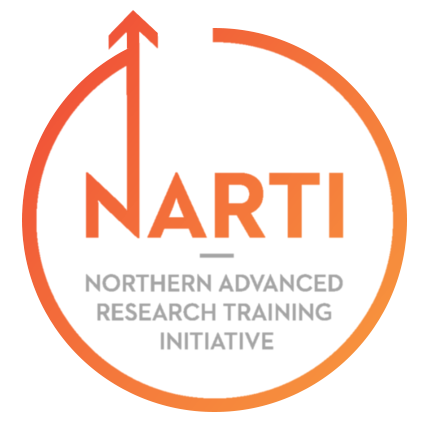Date/Time
Date(s) - 22/05/2018 9:30 am - 5:45 pm
Location
Keele Hall
Audience:
Doctoral Students, Early Career Researchers
Course objectives
The symposium aims to provide a forum where PhD and Early Career Researchers can voice and discuss their experiences of engaging in ethnographic work, from gaining access to the field, transforming fieldwork diaries into PhD chapters and publishing from their work.
The symposium contains talks by experienced ethnographers who have grappled with issues such as overt/covert data collection, auto-ethnography, organisational ethnography and human/non-human ethnographic research. Editors from The Journal of Organizational Ethnography will also present to provide practical insights into getting published.
Participants in the workshop need to have had some exposure to or interest in ethnographic methods as the small group work is based on such experiences. Participants are expected to bring work to discuss with them. This can either be fieldwork or a work-in-progress paper or thesis chapter.
The symposium is aimed at early career researchers and PhD students who are using ethnographic methods for their fieldwork. A brief statement outlining the suitability and reasons for attending is required in the registration form at the bottom of this flyer.
Course overview
The programme will combine presentations and practical discussions, with multiple breaks to allow for conversations to develop and continue beyond the timetabled sessions. There are formal presentations in the morning aimed at sharing expert insights and prompting discussion topics. The afternoon sessions will be discussion-led and will allow participants to get feedback and advice on their work-in-progress.
Presentation 1: New Directions in Ethnography’ (Dr Lindsay Hamilton)
Ethnography is more than a research method, it is a way of life; a way of seeing and thinking about the contours and currents of the social lives as they move around us and shape our experiences. It takes thought and care to move from the embodied subjectivity of a lifeworld to the scholarly treatment of that lifeworld; a balancing act that is often difficult to manage and transcribe into publishable accounts fit for the limited wordspace of the major journals. How then can we think of this form of work? As a vocation? A form of science? A literary endeavour? Where are the innovations that help us navigate the complexity of new social forms and objects of interest? These are the questions to which this session turns. While no simple answers are offered, there will be ample time and space for discussion, reflection and application as we consider new directions in ethnography.
Presentation 2: ‘Transforming ethnographic data into publishable work’ (Professor Matthew Brannan)
This session reflects the task of turning ethnographic insights, or data, into work that is ready to be considered for publication. Van Maanen uses the term ‘headwork’ to draw attention to the conceptual work that both informs, yet follows ‘fieldwork’, and that might ultimately end up as ‘textwork’ (2011:155). While there is a large amount of critical and reflective literature devoted to fieldwork, the headwork task is less articulated and discussed. This is particularly problematic for those engaged in ethnographic work for the first time. Using case studies of published ethnographic work the session will explore how authors have approached the task of producing ethnographic contributions with a particular focus on journal articles. The session thus aims to provide some suggestions for how participants might rethink approaching their data with a view toward publication.
Programme
|
Day 1 |
|
|
09.30-09.45 |
Registration and refreshments |
|
09.45-10.00 |
Welcome and introductions (led by Professor Marylyn Carrigan) |
|
10.00-11.00 |
Presentation: ‘New Directions in Ethnography’ (Dr Lindsay Hamilton) |
|
11.00-11.30 |
Coffee/tea break |
|
11.30-12.30 |
Presentation: ‘Transforming ethnographic data into publishable work’ Professor Matthew Brannan |
|
12.30-13.30 |
Lunch |
|
13.30-14.45 |
Topic-focused small group discussions (groups themed according to PhD / ECR and the types of work the participants bring) |
|
14.45-15.15 |
Coffee/tea break |
|
15.15-16.15 |
Discussion: ‘Meet the editors: getting your work published in an ethnography journal’ (Editor of Journal of Organizational Ethnography) |
|
16.15-16.45 |
Closing plenary session (led by Dr Anita Mangan) |
|
16.45-17.45 |
Reception hosted by the Journal of Organizational Ethnography |
Presenters & contributors
Matthew Brannan is a Professor of Work, Employment and Organisation Studies at Keele Management School. His research focuses on the growth of the Service Sector and the implications this has for contemporary experiences of work. He is currently working on understanding processes of Employee Branding more fully and forms of misconduct at work, especially in relation to the Financial Services Industry. He is a founding editor of the Journal of Organizational Ethnography and a founder member of the Annual Liverpool, Keele Ethnography Symposium.
Dr Lindsay Hamilton is an organisational ethnographer, specialising in study of the interactions between the human and nonhuman elements of business. Recent research projects have included studies of food production and agriculture, disease control, veterinary care and professionalism, amongst others. She has been at Keele University since 2006 when she was awarded a doctoral scholarship. Since then she has authored and edited several books (Animals at Work, Ethnography after Humanism and Contemporary Issues in Management) and articles in journals including Organization, Journal of Organizational Ethnography, New Technology Work and Employment. She is a member of the Community Animation and Social Innovation Centre at Keele (CASIC) and has recently become chief editor of its Working Paper Series.
Professor Marylynn Carrigan is Director of Research at Keele Management School.
Dr Anita Mangan (symposium organiser) is PGR Lead for Keele Management School and is Keele’s representative on the NARTI Board.
